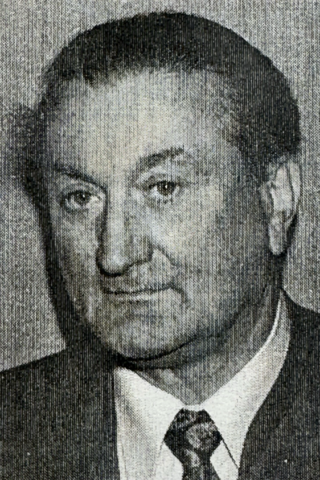Oberregierungsrat Josef Jelinek

Personalia
Born:
Died:
Profession:
Persecution:
Released 10/20/1943,
Imprisonment 12.10.1944 - 24.10.1944,
Imprisonment 18.01.1945 - 02.03.1945,
Mauthausen concentration camp 02.03.1945 - 05.05.1945
Memberships
Curriculum Vitae
Josef Jelinek was born in Watzendorf near Sitzenberg-Reidling in Lower Austria, the son of Josef Jellinek, a servant, and Maria, née Strobl. The family moved to Watzendorf between 1909 and 1915, as his older sister Maria Pfeiffer, née Jelinek, was still born in Vienna.
After his school education, he attended the teacher training college in St. Pölten and Vienna-Strebersdorf between 1930 and 1935. After completing teacher training, Josef Jelinek was unemployed until 1937, before joining the Postal and Telegraph Directorate for Vienna and Lower Austria on August 1, 1937 and subsequently working in various post offices in Lower Austria. Between October 1, 1937 and January 6, 1938, he completed his military service.
On March 12, 1938, the staunchly patriotic Austrian and devout Catholic witnessed the demise of a free and independent Austria with the invasion of the German Wehrmacht. Between January and February 1939, Josef Jelinek was again drafted into the army.
After the outbreak of World War II, Josef Jelinek was drafted into the war as a soldier between January 15, 1941 and July 15, 1943. He then returned to work at the Tulln post office. He obviously openly criticized the National Socialist regime there, especially as he was dismissed from the postal service on 20 October 1943 for 'political reasons'. On the same day, he was conscripted as an armaments worker for the Mineral Oil Administration at the Moosbierbaum plant.
It is no longer possible to determine whether Josef Jelinek had already joined the resistance group Austrian Freedom Front/Group Moosbierbaum before his compulsory service at the Mossbierbaum plant or only during his compulsory service. In any case, his sister Maria Jelinek had already joined the resistance group through her acquaintance with Theobald Weber CanReg.
On October 12, 1944, Josef Jelinek was taken into custody by the Gestapo for 'suspected anti-state involvement' and released on October 24, 1944. After his release from prison, he was employed as an entrenchment worker for the construction of the south-east wall in Burgenland. When the informer Walter Ehart betrays the Austrian Freedom Front/Group Moosbierbaum, Josef Jelinek is arrested again on January 18 and sent to the Mauthausen concentration camp on March 2, 1945. He was liberated there by the US Army on May 5, 1945.
In the concentration camp, he fell ill with typhus and had to be treated in Vienna General Hospital in May and June 1945. On 14 October 1945, he was placed in the service of the state of Lower Austria and joined the Austrian People's Party (ÖVP) and the ÖVP-Kameradschaft der politisch Verfolgten und Bekenner für Österreich.
Places
Residence:
Persecution:
Citations
Landesarchiv Niederösterreich
Dokumentationsarchiv des österreichischen Widerstands (DÖW)
Matricula Online
